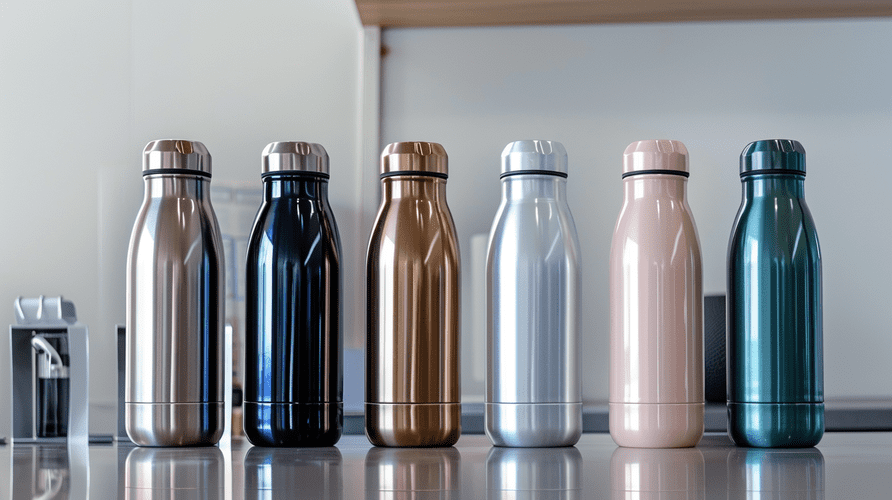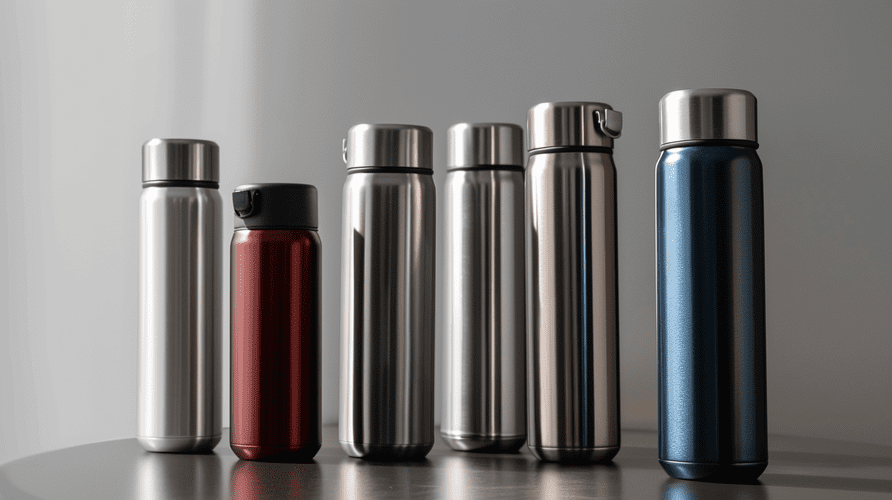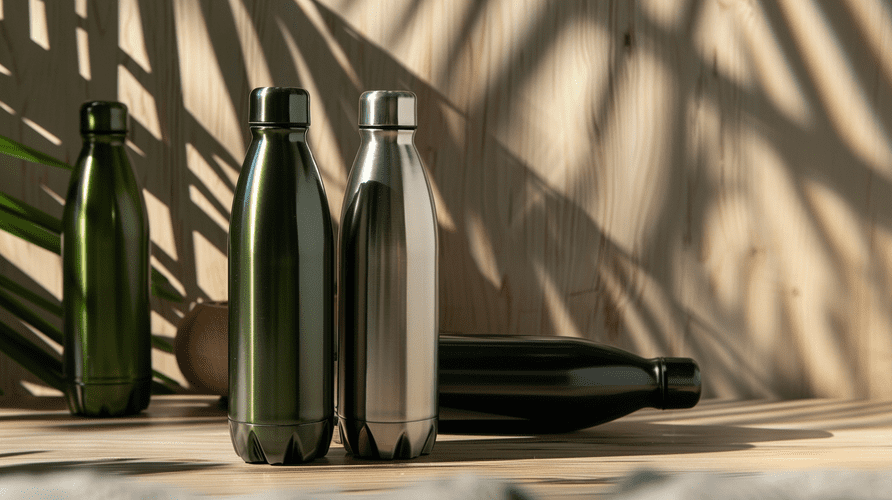Pitching B2B water bottle buyers feels tough? Are your messages ignored? You need a pitch that clearly shows value and gets results.
A compelling B2B pitch highlights specific benefits like durability, customization options, and reliable supply chains. Focus on solving the buyer's problems (e.g., quality concerns, inventory needs) and demonstrating how your bottles meet their specific requirements for resale or branding.

Getting the basics right is just the start. But how do you actually put this into practice? Let's break down the specific strategies you can use to promote your business, sell effectively, and understand if this market is right for you. We'll explore practical steps.
How do I promote my water bottle business?
Finding wholesale buyers seems hard? Are your marketing efforts not bringing leads? Focus promotion on specific B2B channels for better results.
Promote your water bottle business through targeted B2B channels like industry trade shows (virtual or physical), B2B marketplaces (e.g., Alibaba), professional networking on LinkedIn, and targeted Google Ads campaigns focusing on wholesale keywords. Direct outreach to potential distributors also works.

Promoting to businesses needs a specific approach. You cannot just advertise everywhere. Focus matters. I have seen clients like Mark Shenng find suppliers through specific methods, so mirroring that makes sense for reaching similar buyers. You need to be where they are looking.
Targeting the Right Platforms
Think about where procurement officers or business owners look for suppliers. Trade shows are classic for a reason. You get face-to-face interaction and can show your product quality directly. Online B2B platforms like Alibaba or Global Sources are also vital. They offer global reach, especially for connecting with international buyers. Your own company website is important too. It needs to look professional and be optimized with keywords like "stainless steel bottle wholesale1" so buyers using Google can find you.
Leveraging Digital Marketing
Google Ads can be very effective. You need to target specific B2B keywords. Think "bulk custom water bottles2" or "stainless steel bottle manufacturer". LinkedIn is another powerful tool. You can find and connect directly with purchasing managers or company owners in your target industries. Sharing useful content, like blog posts about bottle quality or customization trends, also helps build your company's reputation as an expert source.
The Power of Networking
Do not underestimate direct, personal outreach. Identify companies that fit your ideal customer profile. Reach out professionally with a clear value proposition. Building relationships matters in B2B. Also, happy customers can lead to referrals, which are often the best leads.
Here is a simple breakdown of key channels:
| Channel | Target Audience | Key Action |
|---|---|---|
| Trade Shows | Active Buyers, Industry Contacts | Showcase Products, Network |
| B2B Marketplaces | Global Importers, Wholesalers | List Products, Respond Fast |
| Google Ads | Buyers actively searching terms | Target Keywords, Optimize Ad |
| Decision-makers, Procurement Staff | Connect Directly, Share Info | |
| Website/SEO | Buyers doing online research | Provide Info, Capture Leads |
How do I sell my water bottle to customers?
Got leads but struggle closing deals? Do buyers hesitate or go silent? Focus on understanding B2B needs3 deeply to sell effectively.
Sell water bottles to B2B customers by understanding their specific needs (volume, customization, target market). Provide clear quotes, detailed product specs, quality certifications, and reliable lead times. Build trust through transparent communication and address their pain points like logistics and quality assurance directly.

Selling to businesses, like Mark Shenng's company in Canada, is very different from selling one bottle to a single consumer. It is about building a reliable supply relationship. These buyers have specific needs and face business risks. Your sales process must address these directly.
Understanding the B2B Buyer's Needs
First, you must listen carefully. What order quantity do they need? What specific customization options are important – logos, specific Pantone colors, unique packaging? Who is their final customer? Knowing these details helps you tailor your offer effectively. Mark needs bottles for rebranding and selling at a premium in Canada. His quality expectations and branding needs will be different from a company needing low-cost promotional giveaways. Ask detailed questions about their market, typical order frequency, and quality standards.
Building Trust and Credibility
B2B buyers like Mark worry most about supplier reliability4. You need to address common pain points proactively. Make it easy for them to see quality inspection reports or relevant certifications (like FDA or LFGB compliance). Make sure any certificates you provide are genuine and verifiable; certificate fraud is a real concern for buyers. Be honest and clear about production lead times and shipping details. Good communication is essential. Respond to inquiries quickly. Provide updates, especially if there are potential delays. Use simple, clear language, avoiding jargon they might not understand, especially if they lack technical expertise.
Streamlining the Process
Make the buying process simple and predictable. Offer clear pricing, perhaps with tiers for different volumes. Explain your payment terms clearly (e.g., 30% deposit, 70% before shipment is common). Have a straightforward process for ordering samples, approving designs, and placing the final order.
Address their main concerns clearly:
| Buyer Concern | Your Solution |
|---|---|
| Quality Assurance | Provide detailed specs, offer samples, share QC reports |
| Certification Validity | Offer verifiable certificates (FDA, LFGB, etc.) |
| Logistics & Delays | Give realistic lead times, provide shipping updates |
| Payment Security | Use standard, secure B2B payment methods (e.g., T/T) |
| Communication Issues | Respond quickly, be proactive with information |
Is selling water bottles a good business?
Considering the water bottle market? Worried about competition and profits? Understand the key factors that make this business succeed or fail.
Selling water bottles can be a good business, especially in the B2B wholesale5 space, due to growing environmental awareness and demand for reusable options. Success depends on factors like product quality, differentiation (customization), efficient sourcing, strong supplier relationships, and targeting the right market niche.

Whether selling water bottles is a "good" business really depends on your strategy and execution. The overall market is large. Trends like reducing single-use plastic waste and promoting healthy hydration help drive demand. But it is also a crowded market with many competitors. For a business like mine, Icobottle, which focuses on B2B wholesale and offers high-quality customization6, there are definitely strong opportunities.
Market Trends and Opportunities
The biggest trend supporting this market is sustainability. More consumers and companies want reusable products instead of disposable plastic. Businesses often use branded water bottles for marketing, employee gifts, or resale. Consumers look for durable, stylish, and safe reusable bottles. This creates steady demand for reliable wholesale suppliers who can offer quality products and custom branding options. You can find success by focusing on specific niches, like corporate gifting, supplying sports teams, or creating private label products for retailers.
Key Factors for Success
Based on my experience supplying customers like Mark, success in the B2B water bottle market requires several key things. Product quality is essential; B2B buyers expect durability and safety compliance. Reliable manufacturing and supply chain management are critical – delays can cause buyers to miss their own sales opportunities. Offering value-added services like logo printing, custom colors, and unique packaging helps you stand out from basic suppliers. Building trust through excellent customer service and clear communication leads to repeat orders and long-term partnerships. While pricing must be competitive, B2B buyers often prioritize overall value (quality, reliability, service) over just the lowest price.
Potential Challenges
Competition is intense, ranging from small traders to large factories. Maintaining consistent quality control, especially on large volume orders, requires good systems. International logistics can be complex and costly. Buyers can be very price-sensitive, especially for large volume orders, which can squeeze profit margins. Staying current with material safety regulations and import/export rules in target markets like the US and Europe is also necessary.
Consider how these factors impact success:
| Factor | Impact on Business Success |
|---|---|
| Product Quality | Builds reputation, reduces costly returns/issues |
| Customization | Adds value, justifies better pricing, unique offer |
| Reliable Supply Chain | Ensures on-time delivery, key for buyer trust |
| Pricing Strategy | Needs balance: competitive yet profitable |
| Target Market Niche | Focuses marketing, can reduce direct competition |
Conclusion
Creating a winning B2B sales pitch means understanding buyer needs, promoting smartly, and selling reliably. The water bottle market offers chances if you focus on quality and value.
-
Explore this resource to learn how to effectively optimize your website for better visibility and attract wholesale buyers. ↩
-
This link will provide insights on marketing strategies specifically tailored for bulk custom water bottles, enhancing your outreach efforts. ↩
-
Understanding B2B needs is crucial for tailoring your sales approach and meeting customer expectations effectively. ↩
-
Supplier reliability is a major concern for B2B buyers; explore strategies to build trust and ensure consistent quality. ↩
-
Explore this link to understand how B2B wholesale can maximize your profits and market reach in the water bottle industry. ↩
-
Learn why offering customization can set your water bottle business apart and attract more customers in a competitive market. ↩

